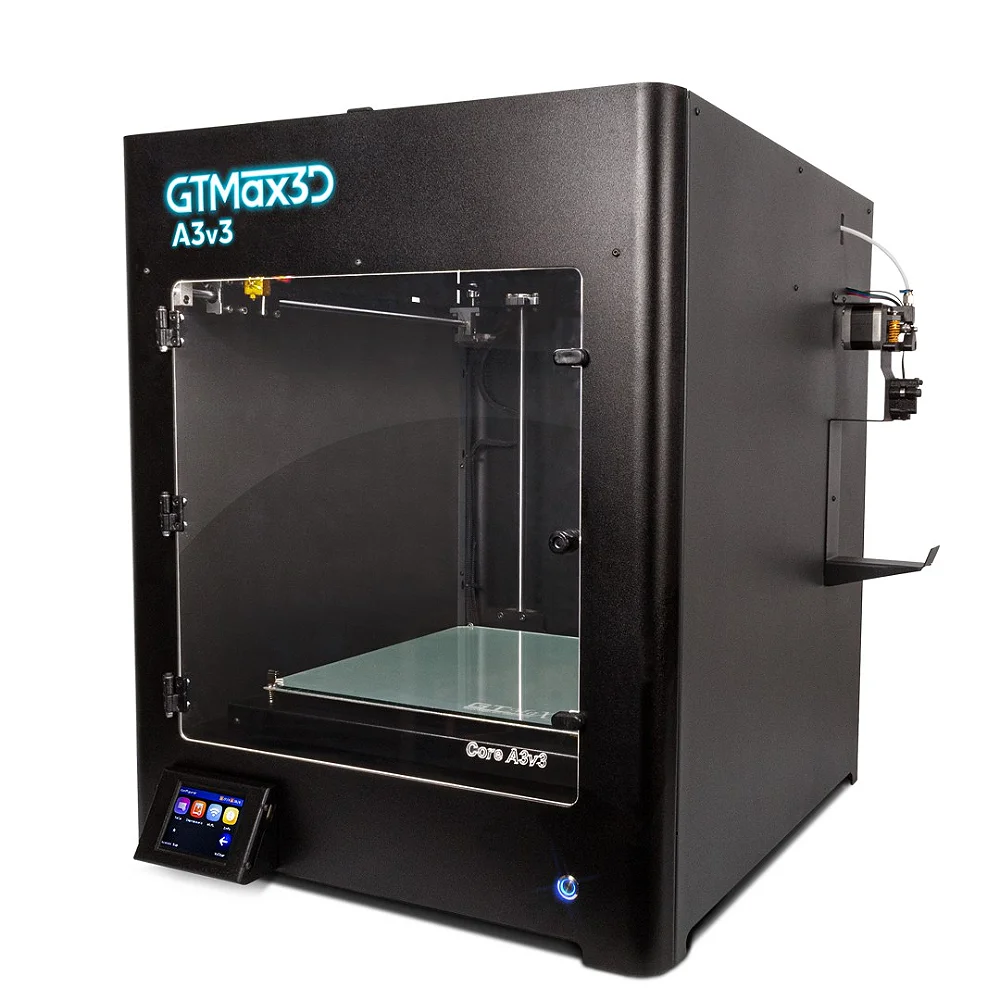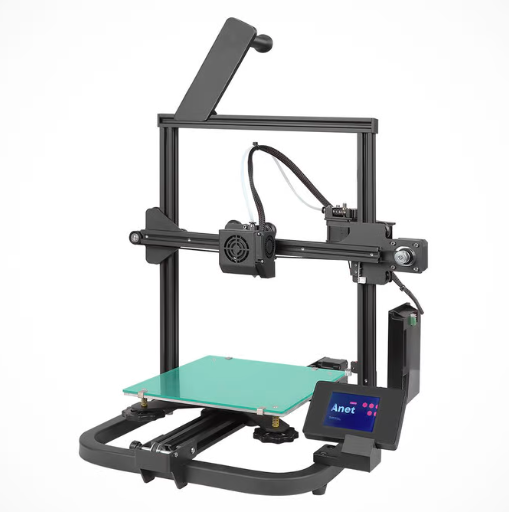Compare A3V3 vs A8 V2
Comparison between the best 3D printers
Choose the best 3D printer at the best price. The cheapest 3D printers are here.
Buy a 3D printer here with 3D Fila.
 |
 |
|
| Model | A3V3 |
A8 V2 |
| Printing Material | Filament | Filament |
| Buy Filament for GTMax A3V3 | Buy Filament forAnet A8 V2 | |
| Estimated price | $1210,00 | $129,00 |
| Manufacturer | GTMax | Anet |
| Release Year | 2022 | 2021 |
| Print Volume [mm] | 320x320x340 | 220x220x250 |
| Printer Size [mm] | 640x580x630 | 428x441x486 |
| Weight [kg] | 6,2 | |
| Power Loss Recovery | YES | NO |
| Enclosed printer | YES | NO |
| Bed Leveling | Automatic | Manual |
| Filament End Sensor | YES | NO |
| Bed type | Heated | |
| Power supply system | Bowden | Bowden |
| Standard nozzle | 0,4 | 0,4 |
| Maximum Nozzle Temperature [°C] | 295 | 230 |
| Maximum Bed Temperature [°C] | ||
| Maximum printing speed [mm/s] | 180 | 150 |
| Filament holder | YES | YES |
| Camera for supervision | NO | NO |
| Recommended filaments | PLA, PETG | PLA |
| Recommended slicers | Cura, Simplify, Slic3r, IdeaMaker e outros | Cura, Simplify, Slic3r, IdeaMaker |
| Maximum Resolution [mm] | 0,05 | 0,1 |
| Processor | ||
| Display | Display touchscreen 3,2'' | Display touchscreen 2,8'' |
| Power Supply | 110/220V / 250W | |
| Connectivity | SD / USB / Wi-Fi | SD / USB |
| Operating systems | Windows, Mac, Linux | Windows, Mac, Linux |
| Date of registration in the system | 2022-11-12 | 2022-11-10 |
| Release date | 2022 | 2021 |
| Extra features | The PROCORE A3v3 is an advanced 3D printer with a robust structure and Wi-Fi connectivity. It stands out for its aluminum extruder with Dual Gear system for precision and traction, and a movement system with machined parts. It includes a 3.2-inch LCD Touchscreen Display, Wi-Fi remote control and a Core XY movement system for greater speed and precision. It offers an Allmetal Volcano hotend that reaches up to 295°C, is compatible with various filaments and has an energy saving system, reducing consumption by up to 75%. | The Anet A8 V2 is a Cartesian-XZ type 3D printer with a build volume of 220 x 220 x 250 mm, Ender 3 design and V-slot assembly. It has a 32-bit motherboard and touchscreen interface, promising ease of use. It uses open source firmware and has thermal failure protection. It stands out for its cable organization and the absence of a heated bed, focusing on energy savings and PLA printing. It comes with an external power adapter, aiming at greater safety, especially for beginners and educational use. |
| Support for multiple colors and materials (AMS and CFS) | NO | NO |
Notes * |
||
| Cost-benefit | 6 / 10 | 6 / 10 |
| Hardware | 3 / 10 | 0.5 / 10 |
| Tela | . | . |
| Print volume | 4 / 10 | 3 / 10 |
| Performance | 1 / 10 | 1 / 10 |
Conclusion |
| In comparing the GTMax A3V3 and the Anet A8 V2 3D printers, it becomes evident that both printers cater to distinct segments of the market, with notable differences in specifications, features, and overall value. The GTMax A3V3 is positioned as a more advanced option, offering a larger print volume, automatic bed leveling, a heated bed, and a power loss recovery feature. These attributes make it a compelling choice for users who prioritize precision and convenience, particularly in professional or demanding environments. The inclusion of a touchscreen interface, enhanced maximum nozzle temperature, and compatibility with a wider variety of filaments further underscore its capabilities. Additionally, with its robust structure and dual gear aluminum extruder, the A3V3 is designed for sustained performance and reliability. Conversely, the Anet A8 V2 is a cost-effective option that appears more suited for beginners or educational purposes. While it provides a smaller print volume and manual bed leveling, it presents an accessible entry point into the world of 3D printing. Its open-source nature and ease of use cater to those who seek a hands-on learning experience, despite its more limited capabilities compared to the A3V3. In terms of cost-benefit, both models rate similarly, yet the A3V3’s superior features justify its higher price for users who require more from their 3D printing experience. Ultimately, the choice between these two models hinges on the user's specific needs—whether they prioritize advanced features and larger print capabilities or prefer a budget-friendly, entry-level printer for basic tasks. |

